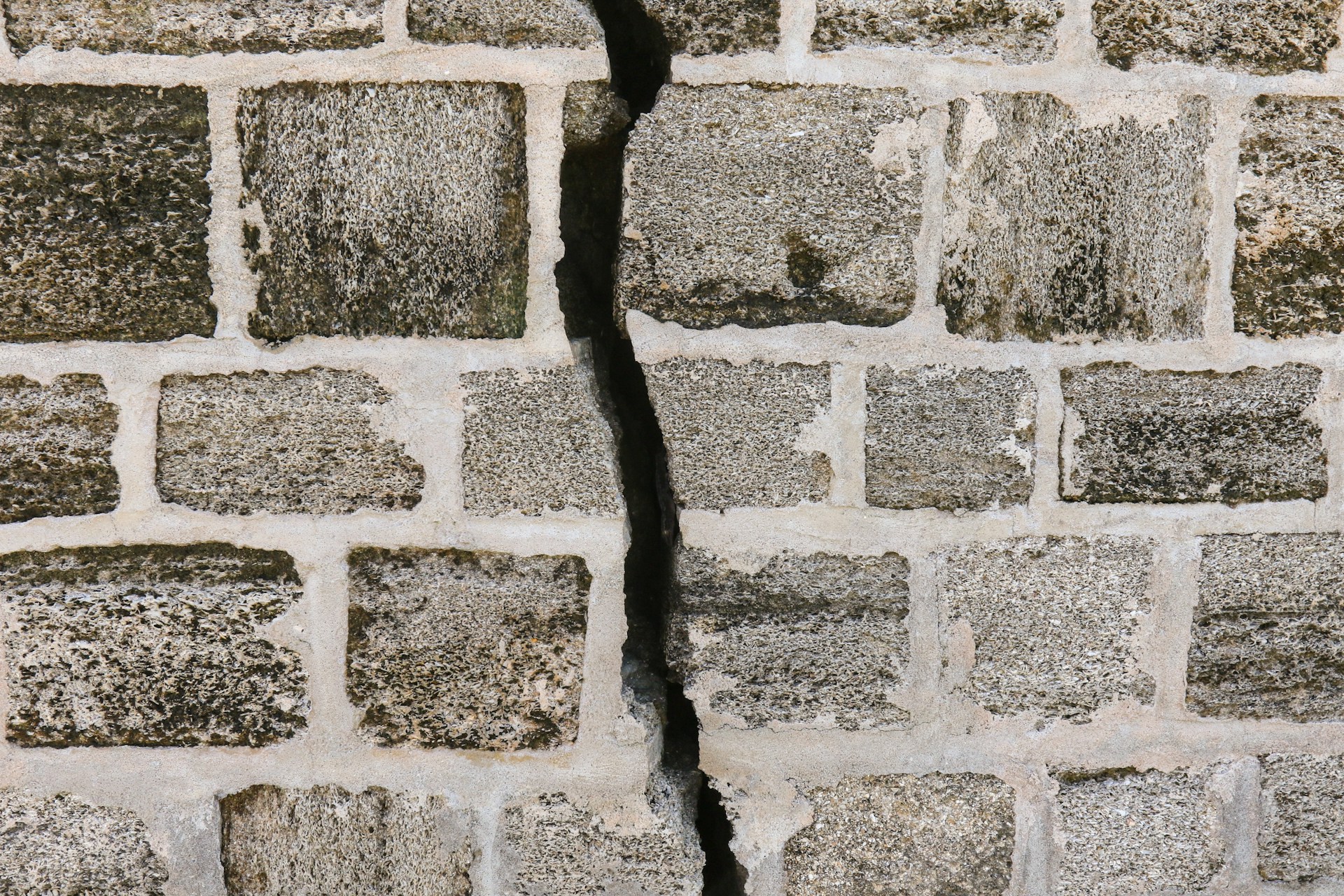Subsidence Solutions: Effective Methods for Repairing Cracks in Your Home’s Walls
Cracks in the wall can be a common issue for homeowners, often signalling underlying problems that need attention. While some cracks are merely cosmetic, others can indicate more serious structural concerns such as subsidence. Understanding the causes and solutions, including resin injection and underpinning, can help maintain the integrity of your home.
Causes of Cracks in the Wall
Cracks in the wall can arise from various factors, including:
- Subsidence: This is one of the most serious causes of wall cracks. Subsidence occurs when the ground beneath a building sinks, leading to instability and structural damage. Common signs include diagonal cracks, cracks above door frames, and cracks that are wider at the top than the bottom.
- Natural Settling: New-build homes often develop minor cracks as they settle into their foundations. This is usually a natural and harmless process.
- Temperature and Humidity Fluctuations: Changes in weather can cause materials in your home to expand and contract, leading to cracks.
- Leaks: Water escaping from plumbing issues can weaken walls and cause cracks.
- Vibrations: Heavy traffic or nearby construction can cause vibrations that result in wall cracks.
Solutions for Subsidence-Related Cracks
When subsidence is the cause of cracks in the wall, it’s essential to address the issue promptly to prevent further damage. Two effective solutions are resin injection and underpinning.
Resin Injection
Resin injection is a modern and efficient method for stabilizing foundations affected by subsidence. The process involves injecting a high-strength resin into the ground beneath the foundation. As the resin expands, it fills voids and compacts the soil, thereby lifting and stabilizing the structure. This technique is less invasive than traditional methods and offers quick results with minimal disruption.
Underpinning
Underpinning is a traditional method used to strengthen and stabilise foundations. It involves extending the foundation depth or breadth so it rests on more stable soil. This method is often employed when a building’s existing foundation is not sufficient to support its weight due to subsidence or other ground movements. Underpinning can be a complex process but is highly effective in providing long-term stability.
When to Seek Professional Help
Not all cracks in the wall require professional intervention, but certain types indicate serious issues:
– Wide Cracks: Cracks wider than 5 millimetres should be inspected by a professional.
– Diagonal Cracks: These often suggest structural movement or subsidence.
– Cracks Above Door Frames: These can indicate foundation problems.
– Visible Daylight: If you can see daylight through a crack, it suggests significant structural movement.
Preventive Measures and Maintenance
Preventing cracks and maintaining the stability of your home’s structure involves regular monitoring and proactive measures:
– Regular Inspections: Regularly check your home for new cracks and monitor existing ones for changes. Early detection can prevent minor issues from becoming major problems.
– Manage Vegetation: Ensure trees and shrubs are not too close to your home’s foundation to prevent root-related subsidence. Roots can interfere with the soil structure, leading to instability.
– Address Leaks Promptly: Fix plumbing issues quickly to avoid water damage that can lead to wall cracks. Moisture can weaken the soil and foundation, exacerbating subsidence.
Benefits of Professional Services
Hiring a professional service like GEOSEC Ground Engineering can provide numerous benefits:
– Expert Assessment: Professionals can accurately diagnose the cause of cracks and recommend the most effective solutions. Their expertise ensures that the root problem is addressed, not just the symptoms.
– Advanced Techniques: Companies like GEOSEC use advanced technology and methods, such as resin injection, to provide efficient and effective solutions. These modern techniques often result in less disruption and faster completion times compared to traditional methods.
– Long-term Solutions: Professional interventions provide long-term stability, reducing the likelihood of future issues. Underpinning, for example, strengthens the foundation to support the structure for many years to come.
– Safety Assurance: Ensuring the structural integrity of your home is paramount. Professional services guarantee that repairs are done safely and to a high standard, protecting your property and occupants.
Conclusion
Cracks in the wall can be more than just a cosmetic issue. Identifying the root cause, especially if it is subsidence, and applying the right solutions such as resin injection or underpinning, is crucial for maintaining the structural integrity of your home. Preventive measures and regular inspections can help mitigate risks, but when serious issues arise, professional intervention is essential.
For expert advice and professional solutions, contact GEOSEC Ground Engineering, a leader in addressing subsidence and foundation stability. With their advanced techniques and experienced team, you can ensure your home remains safe, stable, and secure for years to come. By understanding the causes and taking appropriate action, you can effectively manage and repair cracks, preserving the value and integrity of your property.

